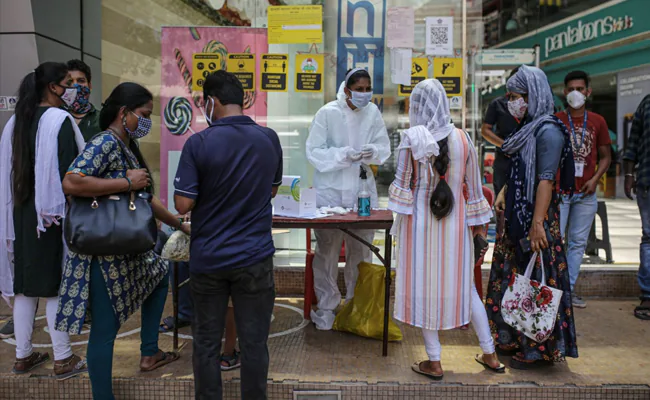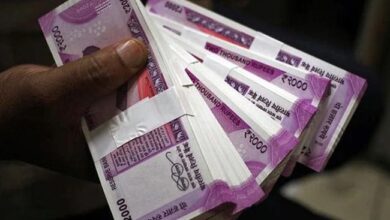Reserve Bank Of India (RBI) May Keep Rates Unchanged As Record Covid Cases Threaten Economy

[ad_1]
The bond market is facing another year of near record supply amid weak appetite for debt
India’s monetary policy makers are poised to hold interest rates this week as the economy faces a renewed threat to growth from the pandemic, with new cases hitting a record. All economists surveyed by Bloomberg as of Monday expect the six-member Monetary Policy Committee to keep the benchmark repurchase rate unchanged at 4 per cent on April 7. Traders will watch for an explicit forward guidance from the Reserve Bank of India on how long the policy stance will stay accommodative and liquidity abundant despite stubborn inflation.
Sticky underlying price pressures had earlier stoked expectations of policy normalization amid signs of a recovery in Asia’s third-largest economy. But a partial lockdown in Maharashtra, which houses the financial hub of Mumbai and contributes about 15 per cent of national output, could likely skew forecasts.
“The current state of affairs will ensure that RBI will not pull back accommodative measures in a hurry,” said Teresa John, economist at Nirmal Bang Equities in Mumbai, who expects a status quo.
Here’s what to watch for in the MPC decision to be announced by Governor Shaktikanta Das in Mumbai on Wednesday morning:
Growth Prospects
In February, the central bank said it expects the economy to expand 10.5 per cent in the year that began April 1 after an estimated 7.7 per cent contraction in the previous 12 months. While Mr Das has indicated there is no immediate threat to that forecast, he could still flag downside risks, given the current surge in virus cases that’s hurting mobility and consumption.

Inflation Forecast
With Prime Minister Narendra Modi’s government renewing the central bank’s mandate of keeping inflation between 2 per cent-6 per cent for another five years, policy makers are likely to reiterate that fighting price pressures will be a top priority. Fuel and food prices, which make up more than 50 per cent of the consumer price index, represent the biggest problem for rate setters, given their ripple effect on inflationary expectations and underlying price pressures.
India is among the few emerging markets in Asia where inflation is above the midpoint of its target band, due largely to food prices that are rising after a brief drop. Economists in a recent Bloomberg survey saw CPI at 5 per cent in the April-June period before easing to 4.7 per cent in the next three months. That compares with the central bank’s forecast of 5 per cent-5.2 per cent for the April to September period.

“The risks of increasing input costs, higher commodity prices, seasonal upside in food prices and better pricing power could prod the MPC to relook at its inflation forecasts,” said Madhavi Arora, lead economist at Emkay Global Financial Services Ltd. in Mumbai. “However, local lockdowns, if they persist, could impact services demand negatively and put downward pressure on first-quarter core inflation and may act as a balancing factor.”
Yield Control
Bond investors will be watching on how active the RBI is with its version of yield curve control and how long the accommodative monetary stance lasts.

“The market is expecting extended forward guidance in policy stance, from ‘going into next fiscal year’ to say ‘end of calendar year,'” said Naveen Singh, head of fixed income at ICICI Securities Primary Dealership in Mumbai.
The bond market is facing another year of near record supply amid weak appetite for debt. Benchmark yields rose 30 basis points last quarter, the most since 2018 amid a sharp spike in U.S. yields and crude prices. Governor Das has assured investors that RBI will help ease the supply burden by purchasing at least Rs 3 trillion ($41 billion) of bonds through open market purchases, or OMOs, and more durable cash injection to compensate for the withdrawal of a relaxation in a cash reserve ratio.
“We expect the RBI to reiterate that surplus liquidity will remain ample to support growth and that the space created by CRR reversal will be offset by OMO purchases of bonds to help bridge the gap between demand-supply of bonds and prevent longer-end bond yields from shooting up excessively in a short period of time,” said Kaushik Das, chief India economist at Deutsche Bank AG.
(Except for the headline, this story has not been edited by NDTV staff and is published from a syndicated feed.)
[ad_2]
Source link


